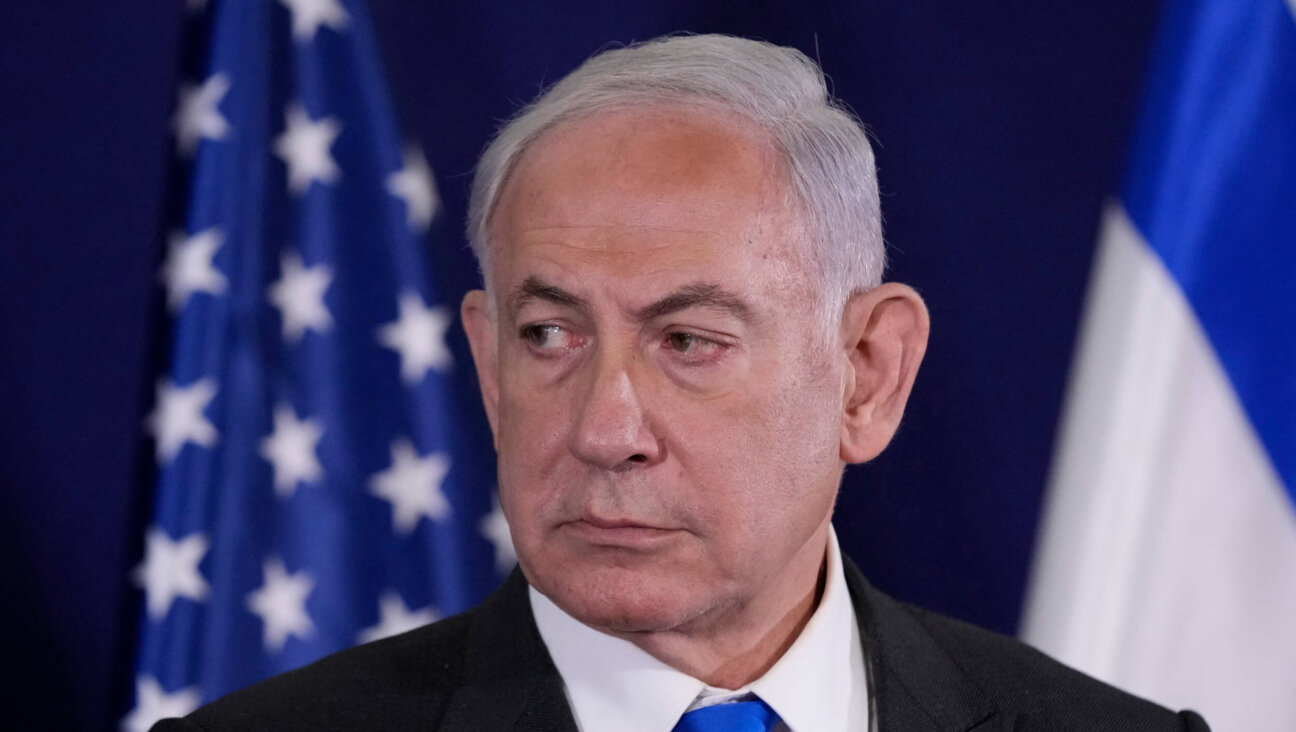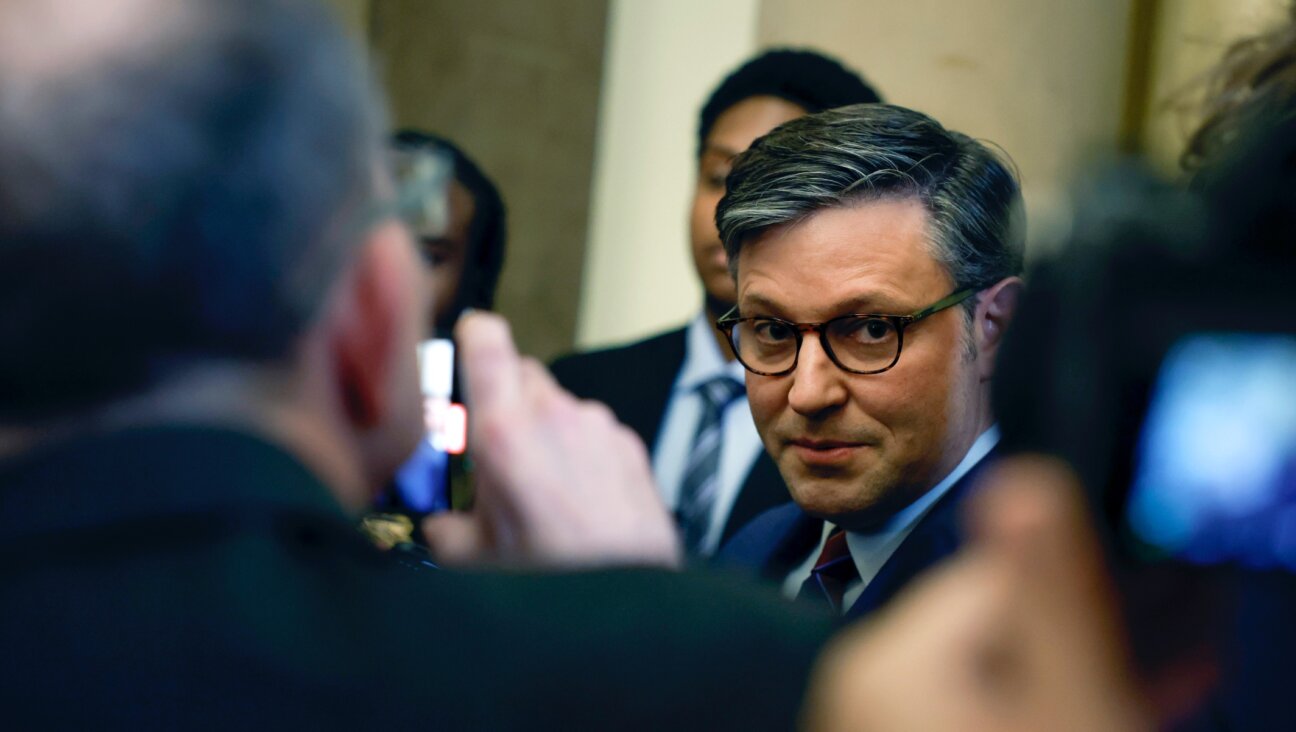The Kind of Friend Israel Needs
President Bush was in this part of the world last month, and I had the opportunity to attend two of his speeches, one at the Knesset, the other at the World Economic Forum in Sharm el Sheikh. On both occasions I found myself standing up and clapping for a president whose feelings of friendship for Israel cannot be doubted — but both times I got up so as not to be the only person in the room to remain seated.
It is not that I disparage feelings of friendship for my country; far from it. I would be very pleased if the next American president believed as deeply as the current one that the Jewish people deserve the nation-state that was established in 1948, that there is a broad common denominator between the world’s only superpower and Israel, and that it is vital to guarantee Israel’s security in today’s nuclearizing world.
But I would be very displeased if the political conclusions of the next president turn out to be identical to those of the current president — a president who, truth be told, has inflicted enormous damage on Israel.
The damage was not intentional, of course. It was, however, a direct function of Bush’s misguided policies. Keen upon taking office to dissociate himself from his predecessor, who had put so much at stake in trying to resolve the Israeli-Palestinian conflict, Bush disengaged himself completely from the peace process. Indeed, his first move was to give then-prime minister Ariel Sharon carte blanche to keep Yasser Arafat physically isolated until the Palestinian leader’s death.
The events of September 11, 2001, forced Bush to rethink his policy, and in June 2002 he gave a speech which has since become known as the “Bush Vision.” But the vision was a blurry one, and Bush did little to realize it. Soon his decision to initiate a war in Iraq stole all his attention anyway — a war, it should be added, that directly contributed to the strengthening of Iran and, therefore, to undermining Israel’s long-term security.
As Bush went to war in Iraq, he apparently realized that he could not altogether abandon the Israeli-Palestinian conflict, and so established the Madrid Quartet along with the European Union, United Nations and Russia. Yet the single most significant product of the quartet, the Road Map, was a non-starter and quickly became a tool that those opposed to peace on both sides could use in order to avoid any political progress. As a new political framework, moreover, the quartet has only neutralized other global players who might have been instrumental to the process at a time when the United States was taking little action.
And the list of damaging policies goes on. In 2004, Bush backed Sharon’s decision to withdraw from Gaza unilaterally rather than in coordination with newly elected Palestinian Authority President Mahmoud Abbas. As is by now clear, Sharon’s move weakened Abbas and strengthened Hamas, which was able to persuasively argue that long years of negotiations had produced nothing while a four-year armed struggle had gotten the Palestinians all of Gaza.
When Bush reached the conclusion a year later that he had the power to push for the democratization of the Arab world, he demanded that Sharon allow Hamas to participate in the elections for the Palestinian parliament. Never mind that such a move was in direct contravention of the Oslo Accords, which prohibited the participation of terrorist organizations in the elections. Here, too, Bush’s policy yielded disaster: Hamas won the elections, and we all know the rest.
When Israel got entangled in a problematic war in Lebanon in the summer of 2006, Bush believed, as a good friend of Israel, that he had to give the Olmert government more time than it actually needed before pushing for a cease-fire. Thanks to Bush’s backing, the military campaign rolled on unnecessarily and Israel paid a strategic price.
And when the United States convened the Annapolis summit late last year, Bush missed the enormous potential inherent in such a broad regional meeting. The president allowed Israel not to put on the table any of the core issues of its conflict with the Palestinians, thereby failing to advance the Arab Peace Initiative, which promises normal relations between the Arab world and Israel if Jerusalem makes peace with its neighbors.
Nor has there been much change in the Bush administration’s misguided ways. Israel’s ongoing talks with Syria have come up against an extremely cold American shoulder.
The next American president will have to work hard to repair the damage done by our faithful friend in the White House. Whether Barack Obama or John McCain, he will succeed in this task if he understands that the joint interest of his country and Israel is reaching peace between Israel and its neighbors.
Such a peace would make it easier for the United States to withdraw from Iraq, present Iran with a more cohesive and unified regional front, and weaken extremist forces for whom the Israeli-Arab conflict has been less a reason for their operations than an excuse to carry on their fight.
Israel’s true friend, in other words, is no Bush. It is, rather, a friend of peace in the Middle East.
Yossi Beilin, a Knesset member and a former Israeli justice minister, is the architect of the unofficial Geneva Accord.

I hope you appreciated this article. Before you go, I’d like to ask you to please support the Forward’s award-winning journalism this Passover.
In this age of misinformation, our work is needed like never before. We report on the news that matters most to American Jews, driven by truth, not ideology.
At a time when newsrooms are closing or cutting back, the Forward has removed its paywall. That means for the first time in our 126-year history, Forward journalism is free to everyone, everywhere. With an ongoing war, rising antisemitism, and a flood of disinformation that may affect the upcoming election, we believe that free and open access to Jewish journalism is imperative.
Readers like you make it all possible. Right now, we’re in the middle of our Passover Pledge Drive and we need 500 people to step up and make a gift to sustain our trustworthy, independent journalism.
Make a gift of any size and become a Forward member today. You’ll support our mission to tell the American Jewish story fully and fairly.
— Rachel Fishman Feddersen, Publisher and CEO
Join our mission to tell the Jewish story fully and fairly.
Our Goal: 500 gifts during our Passover Pledge Drive!

























